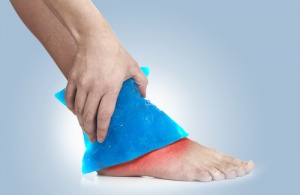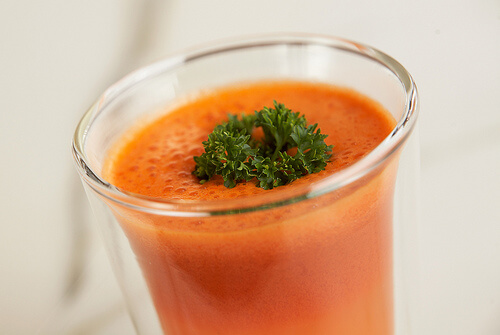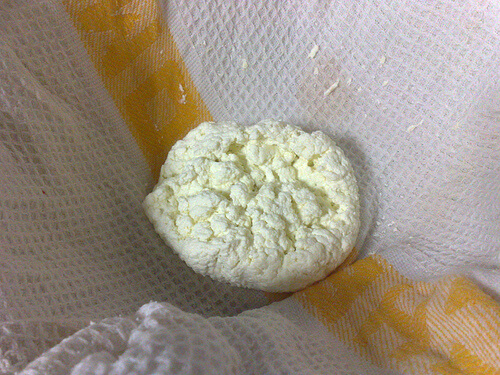Natural Remedies that May Help Reduce Inflammation

Many illnesses manifest themselves in the form of inflammation, causing discomfort and sometimes pain. They can range from muscular or joint pain to inflammation of the skin, throat, eyes, gums, ears, liver, kidney, intestines, etc.
Although each one may present different symptoms and causes, there are some diets and natural remedies that may help you reduce inflammation and relieve your symptoms. Today, we’ll tell you what these remedies are.
Alkaline vegetarian diet
Whenever you experience inflammation, you also have an excess of acidity in your blood. That is why the first remedy we suggest is to follow an alkaline vegetarian diet, at least while you have swelling.
All foods that contain animal protein, like meat, fish, or dairy products, tend to worsen inflammation.
You also have to keep in mind that a lot of vegetable-origin foods may also acidify the body. Thus, the correct thing to do is have a balanced pH by eating acidic and alkaline food. But in this case, since there’s an excess of acidity, we suggest you eat alkaline food. What are the most alkaline foods?
- Vegetable juices (carrot, apple, celery, spinach…).
- Raw spinach.
- Broccoli.
- Carrot.
- Beet.
- Lettuce.
- Garlic.
- Dried figs.
- Raisins.
- Dates.
- Grapes.
- Papaya.
- Kiwi.
- Apple.
- Pear.
- Hazelnuts.
- Almonds.
- Lemon juice.
- Stevia.
- Green tea.

Heat and coldness
Inflammation sometimes needs coldness, especially in the beginning when it’s hot and red. Other times it needs heat, like when you feel that the inflamed area is cold (in general, joints need coldness). Just touch the skin of the inflamed area to find out.
- If you need heat, apply an electrical heating pad.
- If you need coldness, apply a bag of ice covered with a cloth.
Quark or curdled cheese wraps
An interesting poultice that you can make to help cool the inflamed area, especially if it’s hot, is with Quark, curdled, or cottage cheese. Apply it directly to the skin and cover it with a cloth. Leave it on for at least a half hour.

Cold and hot oils
Vegetable and essential oils can have opposing effects. Some may cool it down and others may heat it up.
- Essential oils that may help cool: cypress, spearmint.
- Essential oils that may help heat: ginger, cinnamon.
Mix these essential oils with vegetable oils, adding only a few small drops more than the base oils:
- Cold base oils: coconut, almond.
- Neutral base oils: sesame.
- Hot base oils: olive.
Cabbage compresses that may help reduce inflammation
Cabbage is an excellent anti-inflammatory food that may help relieve swelling.
- To prepare cabbage compresses, use green cabbage.
- Put the leaves in boiling water for a couple minutes.
- Next, squash them so that their juice is released.
- Put them directly on the inflamed area, cover them with a cloth, and put aluminum foil or plastic wrap on top.
- Leave them on for 30 minutes or more.
This article may interest you: 8 Foods to Avoid When You Have Inflammation
You can also use this remedy for menstrual cramps by putting the leaves on top of your stomach.
Facial swelling
Your face is a delicate area and it’s difficult to apply poultices there. Even the use of oils can be uncomfortable. Here we have some simple remedies that may help alleviate inflammations like dermatitis or conjunctivitis:
- Chamomile tea bags: Save tea bags in your refrigerator. They’ll be very useful for swollen eyes. Keep your eyes closed when you have them on.
- Cucumber slices: Fresh cucumber slices also can be used to help reduce inflammation in your eyes and eyelids. Leave them on for 15 to 60 minutes.
- Aloe vera: Aloe helps reduce inflammation and heal. The best way is to have your own plant and cut off a piece, but you can also buy it in a gel and even mix it with oils.
- Marigold: Excellent for skin inflammations. You can buy it in a cream.

Nettle infusions
You can also help reduce your swelling by drinking infusions of medicinal anti-inflammatory plants. We suggest nettle due to its draining and purifying properties.
Prepare a liter of infusion to drink throughout the day. If you wish, sweeten with a little bit of stevia, since honey and sugar have contradictory effects because they’re acidic foods.
Images courtesy of Food Thinkers, cuervo_J, and snarkattack.
This text is provided for informational purposes only and does not replace consultation with a professional. If in doubt, consult your specialist.








